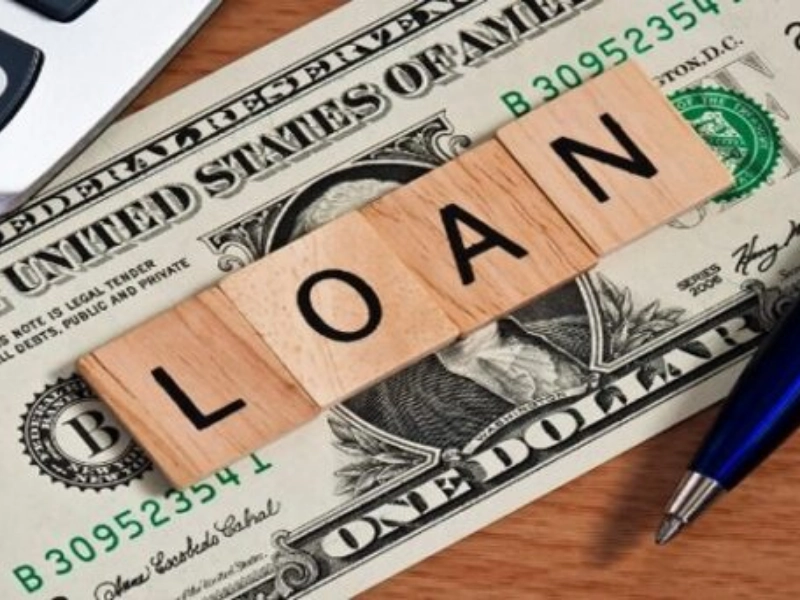There are various options for financing a new or used car. Learn about the most well-liked ones: dealer financing, bank and credit union car loans, and internet lenders. Although banks provide competitive rates, their standards for income and creditworthiness are typically higher. It's critical to weigh the three primary borrowing costs—interest rate, loan term, and fees—before selecting one.
 Your credit history and your debt-to-income ratio—calculated by dividing your monthly payment amount by your total income—are typically taken into consideration by lenders. It may also be necessary to provide proof of your income in the form of tax returns or pay stubs.
A lender will charge interest, which is computed as a percentage of the entire loan amount, when you borrow money. Look around for the best auto loan terms and interest rate before making a car purchase.
Prior to applying for a car loan, the easiest way to get a low interest rate is to improve your credit score and financial status. This might save you thousands of dollars in interest charges throughout the term of your auto loan. Another way to get a great deal on a car loan is to apply with many lenders and choose the one that offers the best rate. Usually, this will require a hard credit inquiry, which could temporarily lower your ratings.
Your credit history and your debt-to-income ratio—calculated by dividing your monthly payment amount by your total income—are typically taken into consideration by lenders. It may also be necessary to provide proof of your income in the form of tax returns or pay stubs.
A lender will charge interest, which is computed as a percentage of the entire loan amount, when you borrow money. Look around for the best auto loan terms and interest rate before making a car purchase.
Prior to applying for a car loan, the easiest way to get a low interest rate is to improve your credit score and financial status. This might save you thousands of dollars in interest charges throughout the term of your auto loan. Another way to get a great deal on a car loan is to apply with many lenders and choose the one that offers the best rate. Usually, this will require a hard credit inquiry, which could temporarily lower your ratings.
 Finding out how much you can afford is the first step in buying a new car. Given that most automobile buyers must finance their purchase, this is noteworthy. This means obtaining a loan that will allow them to pay back the money they spend on an automobile over time, typically with interest.
Your income and credit score are two of the many elements that will determine how eligible you are for the amount. Certain lenders will only approve borrowers with very good credit ratings for auto loans. Some may offer prequalification to applicants so they can have an idea of what to expect prior to applying.
You also need to shop around for the best rates on a car loan. It's a good idea to start with your neighborhood community bank or credit union because they often have more lenient membership criteria and provide auto loans at lower interest rates than banks. Another alternative is to use online lenders, who serve as aggregators, connecting borrowers with offers from their network.
Finding out how much you can afford is the first step in buying a new car. Given that most automobile buyers must finance their purchase, this is noteworthy. This means obtaining a loan that will allow them to pay back the money they spend on an automobile over time, typically with interest.
Your income and credit score are two of the many elements that will determine how eligible you are for the amount. Certain lenders will only approve borrowers with very good credit ratings for auto loans. Some may offer prequalification to applicants so they can have an idea of what to expect prior to applying.
You also need to shop around for the best rates on a car loan. It's a good idea to start with your neighborhood community bank or credit union because they often have more lenient membership criteria and provide auto loans at lower interest rates than banks. Another alternative is to use online lenders, who serve as aggregators, connecting borrowers with offers from their network.
 Principal and interest components of your monthly loan payment are determined by the amount borrowed and the length of time you have to repay the loan (also known as the "loan term"). You may be able to save more money overall by increasing your down payment or trading in your current vehicle.
Lenders consider your credit history and CIBIL score when assessing your ability to repay an auto loan on a monthly basis. In general, the higher your credit score is, the lower your interest rate will be.
You can find additional information about the terms and conditions of the loan by using an auto loan calculator, which takes into account the cost of the vehicle, its trade-in value, and other factors. You can experiment with different down payments and sales tax rates to see how they impact your monthly payment and the total cost of the loan. You can also build credit by making your loan payments on time, which demonstrates to potential lenders that you are a reliable borrower.
Principal and interest components of your monthly loan payment are determined by the amount borrowed and the length of time you have to repay the loan (also known as the "loan term"). You may be able to save more money overall by increasing your down payment or trading in your current vehicle.
Lenders consider your credit history and CIBIL score when assessing your ability to repay an auto loan on a monthly basis. In general, the higher your credit score is, the lower your interest rate will be.
You can find additional information about the terms and conditions of the loan by using an auto loan calculator, which takes into account the cost of the vehicle, its trade-in value, and other factors. You can experiment with different down payments and sales tax rates to see how they impact your monthly payment and the total cost of the loan. You can also build credit by making your loan payments on time, which demonstrates to potential lenders that you are a reliable borrower.
 Auto loans are a crucial part of the car-buying process. It's critical to consider all of your options and account for the term of the loan, interest rate, down payment, and any other costs that may be necessary, such as service contracts or credit insurance.
A down payment can be made with cash, the value of a trade-in, or both. A down payment is an upfront payment toward the cost of the car needed by the lender. This could lead to a decrease in the total amount owing on the loan, which might mean lower monthly payments.
Similar to other consumer loans, auto loans are secured by the borrower's vehicle, which the lender retains as collateral until the loan is paid back. However, collateral for an unsecured personal loan is not required in the case of the borrower's assets. This might have tax repercussions. Speaking with a tax specialist about the specifics of your case is essential. Even though there are many moving parts in the relationship between taxes and car loan finance, understanding how they could function will help you make the right decisions for your goals and financial obligations.
Auto loans are a crucial part of the car-buying process. It's critical to consider all of your options and account for the term of the loan, interest rate, down payment, and any other costs that may be necessary, such as service contracts or credit insurance.
A down payment can be made with cash, the value of a trade-in, or both. A down payment is an upfront payment toward the cost of the car needed by the lender. This could lead to a decrease in the total amount owing on the loan, which might mean lower monthly payments.
Similar to other consumer loans, auto loans are secured by the borrower's vehicle, which the lender retains as collateral until the loan is paid back. However, collateral for an unsecured personal loan is not required in the case of the borrower's assets. This might have tax repercussions. Speaking with a tax specialist about the specifics of your case is essential. Even though there are many moving parts in the relationship between taxes and car loan finance, understanding how they could function will help you make the right decisions for your goals and financial obligations.